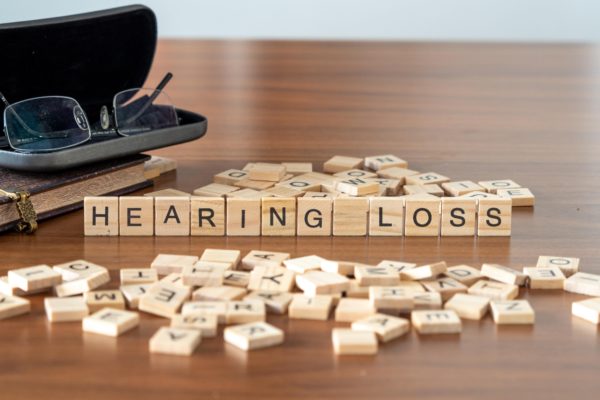Sudden sensorineural hearing loss

To suddenly lose your hearing can be a very frightening and worrying experience, especially if you believe it may be a condition called sudden sensorineural hearing loss (SSHL).
Hearing loss for most people is a gradual progression, but if you experience a sudden or very rapid loss (in one or both ears) then you may have this condition.
This is a serious condition that can affect anyone of any age regardless of any previous hearing issues and needs to be treated as a medical emergency.
As the name suggests, SSHL is a sudden drop in hearing within 3 days (72 hours or less). Some people notice a ‘pop’ before their hearing drops, or it can deteriorate noticeably and very quickly. It is not uncommon to wake up to the condition.
What to do if you think you have sudden sensorineural hearing loss (SSHL)
The key thing is to recognise your hearing is not normal and seek urgent medical care from a hospital A&E, and ask to see an ENT specialist.
- The difficulty with SSHL is that it is invisible and when you present to A&E you may have no other physiological symptoms and may otherwise look and feel well. SSHL cannot be detected by a physical ear examination although this can rule out other complications like ear infection or ear wax as the cause of hearing loss. Sometimes people experience vertigo (dizziness) or tinnitus as well as hearing loss but these too are hard to measure.
- It can therefore be very frustrating to impress upon doctors at A&E how urgently you require treatment and to explain what you are experiencing. Hearing loss may be a temporary outcome of SSHL, but left untreated it can be permanent.
- An audiogram (hearing test) is required to diagnose SSHL and assess the degree and severity of the hearing loss. Often however when you arrive at A&E often the audiology department is not open. If this is the case, try to get an audiogram from a private audiology practice before you go to A&E as many would be happy to so do as an emergency procedure. They can also visually assess your ear to check for ear wax or infection.
- If there is not access to a private or NHS audiologist then the A&E department need to take advice from an ENT specialist as a matter of urgency and discuss whether steroid treatment should be started as a precaution. Steroid treatment within 24-48 hours of onset is said to significantly improve you chance of the hearing returning and acting quickly is crucial. An audiogram (hearing test) should be arranged as soon as possible.
Types of treatment
The recommended treatment for SSHL is a course of high dose steroids (or sometimes steroid injections directly into the ear). Access to treatment very quickly after the onset of SSHL is crucial to improving the chances of restoring your hearing, ideally within 48 hours or less. You should at this point be referred to the care of an ENT specialist.
Once on steroid medication, recovery can take a few weeks or longer and may require a repeat course of steroids. Seek advice from ENT for all options available to you.
Help and support
Recovery from SSHL can be a distressing time and it is important to get as much support as you can. On a day to day basis coping with hearing loss can be daunting and leave you feeling very tired as you have to concentrate so much harder to understand what is being said and navigate the world around you.
In the immediate short-term please get in touch with Hearing Link Services:
- Contact our friendly Helpdesk for personal advice and support. We can put you in touch with a specially trained volunteer who will understand what you are going through.
- Consider attending one of our free support groups which run throughout the year in different places all over the UK.
- Go online to visit some useful social network forums.
- Find out about safety and assistive devices, including flashing doorbells, smoke alarms, streamers and TV loops. Visit our online shop.
Lipreading and communicating
Hearing loss can be very isolating and it is easy to withdraw from social life because it is too challenging. Try to stay as involved as possible and encourage people to keep talking to you. Ensure you speak back to them too and expect to get some conversations wrong. It will happen a lot, but most people will understand.
- Try out the speech to text apps that are available for smart phones (e.g. Dragon, Hearing Helper, Texthearpersonal). You can hand your phone to the speaker and tap the mike to read what they are saying as text.
- Take a pen and paper with you and encourage people to write important details down so you are kept clearly informed. Try not to feel awkward doing this as it is better to get information right. A portable digital memopad can be really handy.
- Visit our pages on lipreading.
- Find out about Relay UK (text telephone relay).
The causes of SSHL are not fully understood so prevention is difficult. Sometimes SSHL can occur after major head trauma, virus infection, blood circulation issues or as a result of an autoimmune condition. Sometimes further investigation is warranted either by MRI scan or CT scan but most often no identifiable cause of SSHL is found. It can be counterproductive to keep searching for an answer and better to focus on recovery and strategies for coping with hearing loss.
SSHL is still quite rare but can easily go undiagnosed. It is therefore important to understand your own hearing and protect it wherever necessary. Try to get a hearing test so that you have a baseline record of your hearing and never ignore any changes that may occur.
Sudden sensorineural hearing loss infographic

Webpage updated: April 2024

